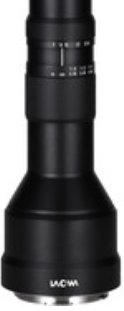There are none so blind as those who will not see. The fact that 41% of ILCs made this year were DSLRs means they are anything but bye bye, except in the fantasy world in which you apparently choose to live. I hope it’s at least nice in there, but if you’d like to come back into the real world at some point, you’ll be welcome.
Canon is about to release the R1, and there is an announcement that there will be no more follow up the 1DXIII. There will still be 1DXIII bodies sold next year, but the 1D line of camera is at the end the line. It's future is dead.
The R5 is being sold now. As are 5DIVs. There will be no 5DV. There is no future for the 5D line. (Or rather the R5 line has supplanted it and is the future.) The 5D line is dead.
The R6 is being sold now. As are 6DIIs. There will be no 6DIII. The 6D line is dead.
There will be an APS-C R-mount camera body sold next year. Whichever line of DSLR it is the spiritual successor to will likely not have another DSLR equivalent released. That line in its DSLR form will be dead.
For each camera body DSLR line that Canon is able to release an R-mount version for, that DSLR line will be killed off. When Canon finally releases R-mount equivalents of all their DSLR lines, the DSLR (from Canon) will be dead. That's not to say other companies won't make DSLRs. But each year Canon continues to transition away from the DSLR.
I don't think these are very bold, nor fantastical claims to make.
Also, I know how Tool can be viewed here and other places like Reddit, but his latest video talks about this article and what it means to be "dead."
Also here are the Twitter replies Tool is referencing in the beginning of this video.
Original Tweet: "Native Japanese speakers: Would you read this article (without using Google Translate) & tell me whether Canon is saying the 1DX III is the final DSLR or just the final 1-series DSLR?"
One of the replies: "Yes. They do say that in few years they will be ending R&D for DSLR and move to all mirrorless cameras. They also mention that 1DX III is the last flagship camera for DSLR."
Another reply: "2nd paragraph says that 1D X Mk3, which they released in 2020, is going to be the de facto final DSLR fragship model. The last paragraph reads that they continue producing low/mid-level DSLR models for another while since there is enough demand overseas."
The final reply regarding translating the article: "CEO said Canon will end R&D and production of DSLR in "few years" and on next paragraph; article states 1DX III will be de facto last model. (doesn't read like that was CEO statement but the Yomiuri Newspaper's understanding)"

